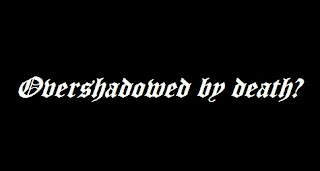Today’s Gospel presents us with “the Beatitudes,” essential teachings of Jesus found in “the Sermon on the Mount” (see Matthew 5:3-12). These admonitions and promises were meant to guide his followers as they went about their lives at home, and also in the “public squares.” Jesus said: “Blessed are those who are poor in spirit, mourning, meek, hungering and thirsting for righteousness, merciful, pure in heart, peacemakers, persecuted for righteousness sake, reviled, persecuted, and falsely accused because of their faith.” He promised those who were so disposed would receive great blessings in return; they would be “given the kingdom of heaven, comforted, made inheritors of the land, satisfied, shown mercy, granted visions of God, called children of God, and bestowed with great rewards in heaven.” Isn’t it true these teachings of Jesus, so familiar to us today, were some of the most thought-provoking he offered to his followers? There’s no doubt even people from other faith traditions have taken great inspiration from them as well! And as they guided the earliest of Christians, they continue to provide great and much needed wisdom for us today.
I think my favorite Beatitude is “blessed are the merciful, for they will be shown mercy.” And it’s not surprising to me this one was highlighted by Jesus right in the middle of these teachings. This suggests to me it was a “very central theme” of this sermon! The great need for “mercy” among the people in Jesus’ day probably wasn’t too much different than in our own time. Even though we are Christians, like those who first heard the preaching of Jesus, any one of us might be tempted to “withhold mercy” from those who have “sinned against us,” from those who have disappointed us, and from those who may have caused us emotional damage or pain. I’m sure all of us can think of individual people, and even organized groups of people, who’ve fit these descriptions – some of them we’ve encountered close to home, and others we’ve been beset by in the “public square.” And let’s be honest, when people have wronged us, isn’t it then very easy to “withhold mercy” and not to forgive? I know this is true for me!
Of course, Jesus’ all important teaching on mercy is also notably found in the words of the “Our Father,” perhaps the prayer most often recited by every Christian. In it, we say “forgive us our trespasses, as we forgive those who trespass against us.” With these words in mind, and as we contemplate all of the Beatitudes, especially the one about “mercy,” let’s ask ourselves if we really believe these basic teachings of Jesus. Do we affirm and give witness to them with all of our thoughts, words, and actions? If not, it might be a good idea for us to think about how we might once again conform our lives to the wisdom of Jesus! This is no easy thing to do, but it’s required of us because we call ourselves “Christians.” At same time, and with just about every teaching contained in “the Beatitudes,” I believe we should remind ourselves “mercy and forgiveness” have more to do with those who give, than with those who receive (but that’s the subject of another essay).
Remaining faithful to the teachings of Jesus’ “Sermon on the Mount” can be challenging, as well as the source of great blessings. As devoted Christians, we can be confident we will be “given the kingdom of heaven, comforted, made inheritors of the land, satisfied, shown mercy, granted visions of God, called children of God, and bestowed with great rewards in heaven.” May “the Beatitudes” always inspire us, especially in the manner in which we show mercy and we forgive others, both at home and in the “public square.”
Praise God! Friar Timothy


